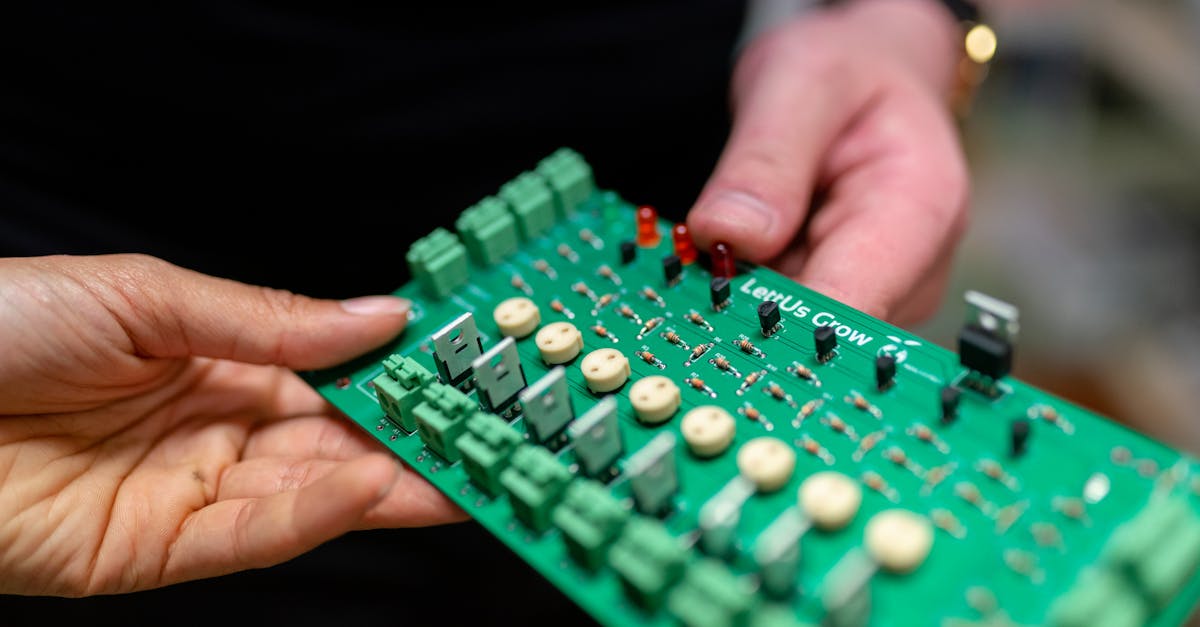In a world where your fridge might send you a text when you’re out of milk, IoT engineers are the unsung heroes making it all happen. These tech-savvy wizards blend software and hardware to create smart devices that connect and communicate, turning everyday objects into digital dynamos. If you’ve ever wondered who’s behind the magic of smart homes and connected cars, look no further.
With the Internet of Things rapidly evolving, the demand for IoT engineers is skyrocketing. They’re the ones who ensure your smart thermostat doesn’t just sit there looking pretty but actually learns your heating preferences. So, if you’re ready to dive into a career that’s as exciting as it is vital, becoming an IoT engineer might just be your ticket to the future—complete with a side of humor and a dash of techy charm.
Table of Contents
ToggleOverview of IoT Engineering
IoT engineering focuses on creating interconnected devices that communicate and share data seamlessly. These engineers design and implement solutions for various applications, including smart homes, healthcare, and industrial automation. The role encompasses hardware and software development, ensuring devices operate efficiently under diverse conditions.
Engineers collaborate with teams to develop protocols and standards that govern device interaction. They prioritize security by integrating encryption and authentication measures into their designs. Emphasizing user experience, they create intuitive interfaces that facilitate device management and control.
The field requires knowledge of programming languages such as Python, C, and JavaScript. Familiarity with cloud computing and data analytics enhances an IoT engineer’s ability to process and analyze large data sets. Skills in machine learning further empower engineers to optimize device functionality by predicting user behavior.
As the market for smart devices expands, IoT engineers play a vital role in shaping future technologies. Companies seek professionals with problem-solving abilities and strong analytical skills. With their expertise, IoT engineers drive innovation, adapting existing solutions and creating new devices that enhance efficiency and convenience.
Industry growth creates numerous job opportunities for aspiring engineers. Educational programs and certifications focus on electrical engineering, computer science, and IoT-specific training. Candidates gain a competitive edge by staying updated on emerging technologies and trends in the IoT landscape.
Key Responsibilities of an IoT Engineer
IoT engineers play a pivotal role in creating innovative solutions that connect devices. They focus on several key responsibilities, each essential to the success of IoT projects.
Designing IoT Solutions
Creating effective IoT solutions involves understanding user needs and device capabilities. Engineers analyze requirements, ensuring designs meet functionality and usability standards. They select appropriate sensors, microcontrollers, and communication protocols. Prototyping allows engineers to test concepts before full deployment. Collaboration with cross-functional teams enhances the design process, fostering better integration and performance.
Developing Software for IoT Devices
Writing software for IoT devices requires proficiency in various programming languages. Engineers utilize languages like Python, C, and JavaScript to create applications that control device functions. They ensure software effectively communicates with hardware components. Integrating cloud services often enhances data storage and processing capabilities. Continuous testing and debugging guarantee software reliability and security. Collaboration with firmware developers ensures seamless interaction between software and hardware.
Managing IoT Systems
Maintaining IoT systems involves overseeing hardware and software components. Engineers monitor device performance and connectivity, addressing any operational issues promptly. They implement security measures to protect against cyber threats, using encryption and authentication protocols. Regular updates and patches keep systems running efficiently. Analyzing data collected from devices helps identify areas for improvement and optimization. Efficient management ensures devices operate together seamlessly, enhancing user experience and satisfaction.
Essential Skills for IoT Engineers
IoT engineers require a mix of technical and soft skills to thrive in the rapidly evolving landscape of smart technology. These skills enable them to develop innovative solutions that enhance user experiences and improve device functionalities.
Technical Skills
Proficiency in programming languages like Python, C, and JavaScript is vital for IoT engineers. Their work involves developing the software that interfaces with hardware components. Familiarity with cloud computing and data analytics enables meaningful insights into device performance. Knowledge of security protocols is essential, as engineers must ensure that data remains protected against unauthorized access. Experience with machine learning enhances their ability to optimize devices for user preferences. IoT engineers must understand communication protocols to facilitate seamless device interaction across various platforms.
Soft Skills
Problem-solving abilities play a crucial role in addressing challenges associated with IoT systems. Communication skills ensure that engineers can collaborate effectively with cross-functional teams. Adaptability is key for responding to the fast pace of technology advancements. Attention to detail helps engineers maintain high standards in both design and implementation. Creativity fuels innovation, enabling the development of unique solutions that meet diverse user needs. An understanding of user experience principles allows them to create intuitive interfaces that simplify interactions with smart devices.
Career Opportunities in IoT Engineering
The IoT engineering field offers an array of exciting career opportunities. Job roles range from IoT developer to systems architect, each requiring specialized skills and knowledge. Industries such as healthcare, automotive, and manufacturing actively seek IoT engineers to enhance their technological advancements.
Various companies are investing heavily in IoT initiatives. Organizations like IBM, Cisco, and Amazon continually hire IoT professionals to develop cutting-edge solutions. Startups also contribute to the demand, focusing on innovative applications in smart homes and connected devices.
Certifications can boost career prospects significantly. Programs like AWS Certified Solutions Architect or Cisco Certified Network Associate focus on IoT applications and help professionals stand out in the competitive market. Continuous learning in emerging technologies, such as 5G networking or edge computing, further enhances job readiness.
Salaries for IoT engineers reflect the high demand for their expertise. Data from the U.S. Bureau of Labor Statistics indicates that the average salary for computer and information technology occupations is around $93,710 annually. Senior IoT engineers often earn upwards of $130,000, depending on experience and location.
Networking plays a crucial role in advancing IoT careers. Joining professional organizations, attending industry conferences, and participating in online forums provide valuable connections and insights. Engaging with the IoT community fosters collaboration and encourages knowledge sharing.
The future outlook for IoT engineering jobs remains robust. As industries increasingly embrace digital transformation, the need for skilled professionals continues to rise. Emerging technologies and innovations in the field promise to create more opportunities and enhance career trajectories for IoT engineers.
Future Trends in IoT Engineering
IoT engineering trends are evolving rapidly, driven by advancements in technology. Increased integration of artificial intelligence enables devices to learn and adapt, enhancing user experiences. Security enhancements become paramount as the number of connected devices rises, necessitating robust encryption and authentication measures.
Edge computing gains traction, allowing data processing closer to where it’s generated. This approach lowers latency and reduces bandwidth use, making IoT systems more efficient. Adoption of 5G technology opens new possibilities for high-speed connectivity, catering to more devices simultaneously, which leads to improved performance in smart environments.
Sustainable practices emerge as a priority in IoT engineering. Engineers strive to develop energy-efficient devices, minimizing environmental impact while maximizing performance. The continuous evolution of analytics tools enables more profound insights from data collected through IoT systems.
Interoperability among devices remains crucial as multiple platforms become integrated. Engineers focus on creating standards that allow seamless communication between diverse devices, fostering ecosystem growth. The surge in smart home applications accelerates demand for user-friendly designs, which promote ease of use and accessibility.
Collaborative efforts between industries and IoT engineers will increase, promoting innovation across sectors like healthcare and automotive. Professionals equipped with advanced degrees will be better prepared to tackle these emerging challenges, ensuring they stay competitive in the workforce. With these trends shaping the future of IoT engineering, opportunities for new solutions and advancements continue to expand.
The role of an IoT engineer is more critical than ever in today’s tech-driven world. As smart devices become integral to daily life, the demand for skilled professionals will only grow. Those pursuing this career can expect a landscape rich with opportunities and innovation.
With a focus on both technical and soft skills, IoT engineers are well-positioned to lead advancements in various sectors. By staying abreast of emerging technologies and trends, they can ensure their relevance in a rapidly evolving field. The future of IoT engineering promises not just job security but the chance to shape how technology interacts with everyday experiences.




